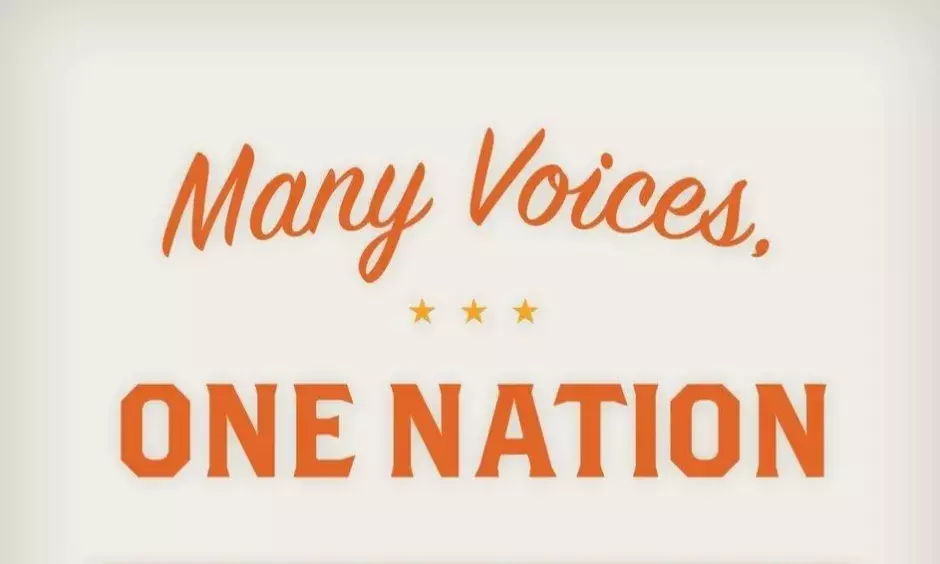A Nation of Many Voices: Can One Code Speak for All?
India's debates over Uniform Civil Code and Muslim reservations expose deep fault lines. Can a single code unite the nation, or will it create more divisions?;

Once upon a time—well, not exactly time as we know it, but in a mythical era when humanity spoke one language, people decided they’d had enough of the grind. "Why toil on Earth when we can reach the heavens?" someone quipped. The solution? Build a tower so tall it would touch the sky.
It was the kind of audacious plan that could grace a start-up pitch deck. Architects drew grand blueprints, bricklayers worked double shifts, and even toddlers joined in with chants of "Higher! Higher! Sky’s the limit!" The tower soared, a testament to collective ambition. But just as success seemed inevitable, disaster struck.
Suddenly, no one could understand each other. The foreman’s call for bricks was met with bewildered stares. Arguments broke out, tempers flared, and the project descended into chaos. The divine twist? A confusion of languages. Unable to communicate, the builders scattered, leaving their grand vision incomplete—a monument to misunderstanding rather than unity.
This ancient tale feels strangely relevant to today’s India. Like the builders of Babel, we grapple with the challenge of balancing unity and diversity. The debates over the Uniform Civil Code (UCC) and Muslim reservations echo similar questions: Are we trying to build a metaphorical tower that unites everyone under one framework? And in doing so, are we ignoring the delicate mosaic of identities that makes us who we are?
The Bharatiya Janata Party's relentless push for a Uniform Civil Code reads like a well-orchestrated political symphony, hitting notes of modernization while carefully avoiding the discordant realities of India's complex social landscape. It's reminiscent of attempting to create a single-flavor ice cream for a country with thousands of culinary traditions—noble in intent, but potentially disastrous in execution.
Take the implementation of UCC in Uttarakhand, for instance. It's like trying to fit a square peg of standardization into the round hole of cultural diversity. The move smacks of a top-down approach that seems more interested in political optics than genuine social transformation. Personal laws aren't just legal footnotes—they're living, breathing representations of community identities that have evolved over centuries.
Consider the global context. France's aggressive secularism provides a cautionary tale. Its ban on religious symbols in public spaces, ostensibly aimed at integration, has instead created more division and alienation. India stands at a similar crossroads, with the potential to either bridge divides or create deeper fissures.
The reservation debate adds another layer of complexity. It's a political chess game where marginalized communities are unwitting pawns. The BJP's stance against religion-based reservations might sound principled, but it conveniently ignores the socio-economic realities documented by the Sachar Committee. It's like arguing about the color of a life jacket while ignoring that the boat is sinking.
What's particularly fascinating is how these debates expose the fault lines of Indian politics. The Congress, traditionally positioning itself as the guardian of minority rights, appears perpetually trapped between bold rhetoric and tepid action. It's reminiscent of a nervous tightrope walker, constantly looking down and afraid to take a definitive step.
The irony is palpable. A country that prides itself on its constitutional commitment to secularism finds itself entangled in a web of religious and cultural complexities. The UCC, theoretically a tool for equality, risks becoming a sledgehammer that could shatter the very social fabric it aims to mend.
Global comparisons offer illuminating perspectives. Turkey's Kemalist reforms provide a stark reminder of how well-intentioned standardization can backfire. Atatürk's secular reforms, while progressive on paper, created decades of social tension by dismissing deeply rooted cultural practices.
The data speaks volumes. The Sachar Committee Report laid bare the stark educational and economic marginalization of Muslim communities. Yet, the current political discourse seems more interested in scoring political points than addressing systemic inequalities. It's like diagnosing a complex medical condition and then prescribing a placebo.
What India needs is not a uniform code, but a nuanced approach that respects diversity while addressing genuine inequalities. This requires more than legislative amendments—it demands a fundamental reimagining of social justice. It's about creating a framework that sees beyond religious identities to the lived experiences of marginalized communities.
The solution isn't uniformity, but a more sophisticated understanding of unity. Imagine a national commission that isn't just a bureaucratic exercise, but a genuine dialogue platform. Representatives from diverse communities, legal experts, sociologists—all working together to craft solutions that reflect India's pluralistic ethos.
The reservation debate, similarly, needs a radical reimagining. Instead of religious categorizations, focus on genuine socio-economic indicators. Create a dynamic system that adapts to changing social realities, one that sees individuals beyond their religious or caste identities.
Political parties, particularly the BJP, must recognize that social transformation isn't achieved through legislative fiat but through genuine dialogue and understanding. The current approach feels like trying to untangle a complex knot with a pair of scissors—crude, potentially destructive, and missing the nuanced touch required.
For all its complexities, India's strength has always been its ability to embrace contradictions. It's a civilization that has survived and thrived not by imposing uniformity, but by creating space for diverse narratives to coexist. The UCC and reservation debates are not just policy challenges—they're tests of India's commitment to its foundational principles of secularism and social justice.
As the nation stands at this crossroads, the path forward requires more than political rhetoric. It demands empathy, nuanced understanding, and a genuine commitment to creating a society where every citizen, regardless of religion, caste, or community, can truly belong.
The uniform civil code shouldn't be a tool of political conquest, but a bridge of understanding. Reservations shouldn't be a zero-sum game, but a genuine mechanism for social mobility. Only then can India truly live up to its constitutional promise—a promise of justice,liberty, equality, and fraternity.

